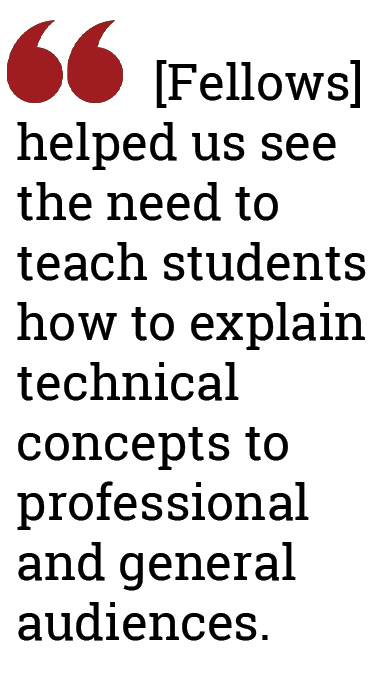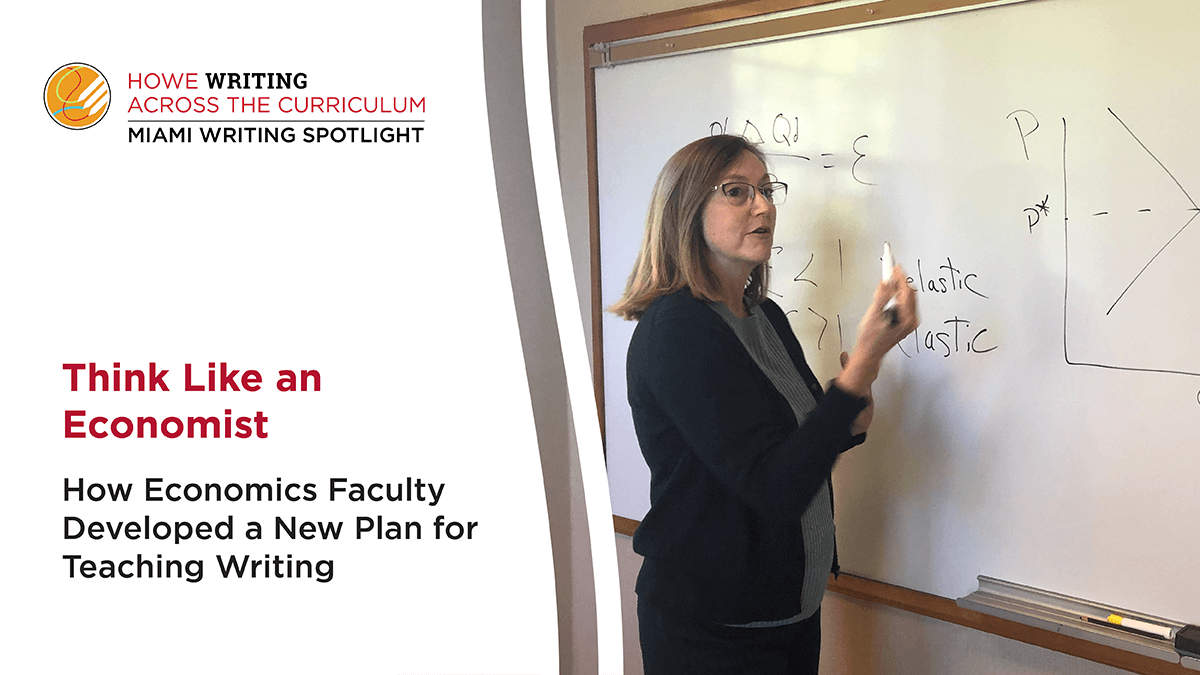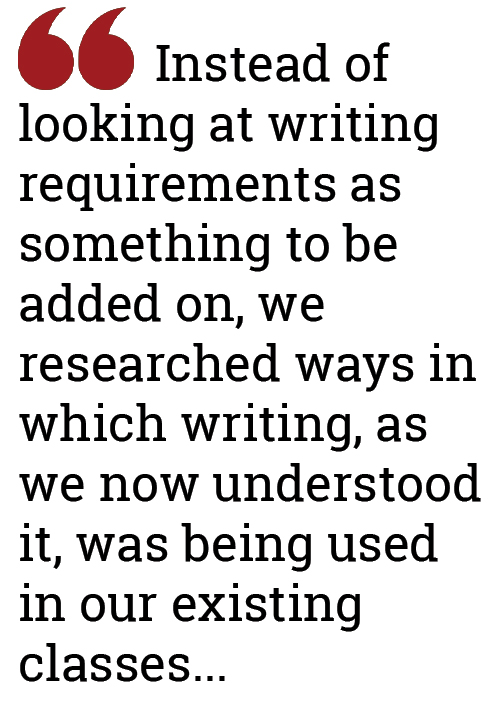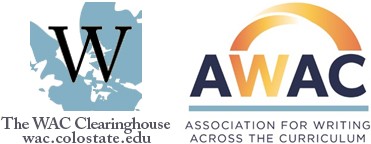Think Like an Economist: How Economics Faculty Developed a New Plan for Teaching Writing
Think like an economist
The phrase “think like an economist” is common in introductory economics textbooks, Kinghorn and Shao explain. But despite the phrase’s ubiquity, their experiences suggest it was a “lofty goal.”
Participating in the Fellows program provided a space for Kinghorn, Shao, and Brindley, who has since moved to another institution, to examine teaching and learning in economics. This gave them the opportunity to think about what economists do and how they teach that to undergraduate economics students.
Thinking like an economist, Kinghorn and Shao explain, also means writing like an economist. Talking about writing with faculty from other disciplines also participating in the Fellows program “reminded [them] that writing could look quite different across disciplines."
As a result of these disciplinary differences, they say, “It is incumbent upon us to teach students the particular things valued in economics, as they will not have learned them in a course from other departments.”
One important realization the team made about writing in economics was that “writing” is more than words. In order to “think like an economist,” students need to be able to “perform and interpret empirical analysis and explain the findings using writing,” Kinghorn and Shao explain.
Their department writing plan now has multiple opportunities for students to develop these analytical and communication skills.
Teaching disciplinary writing
To create their new department writing plan, the economics Fellows were guided by the understanding that only economists can teach students the values and conventions of economics writing. Further, they recognized that they had opportunities to improve how they did this work in their department.
By recognizing that writing is more than words, the Fellows team was able to identify and then explain to others disciplinary writing that their students would not learn outside of economics courses.
As Brindley explained to researchers in the HCWE, “If you'd asked me before we started, ‘Do your Intro to Econ. students write?’ I would have said, ‘No. They don't write; they just solve this equation; they graph it. And they might explain the implications of that a little bit.’ But having our discussions here showed me that when I asked them to do that on the exam, they're actually writing.”

With their new writing plan, students are now given specific kinds of instruction to support them as they learn to “think like an economist.”
In 400-level courses, for example, writing instruction involves how to read disciplinary language. This instruction helps students in their assignments, which include writing to both specialist and generalist audiences.
Understanding disciplinary language is important for adapting their writing to their audience, Kinghorn and Shao explain: “When writing for fellow professionals, economists can use technical terms and reference theories that would be inappropriate when writing for a general audience” and “The Fellows Program helped us see the need to teach students how to explain technical concepts to professional and general audiences.”
Read more about the Global Miami Plan Advanced Writing Requirements and course approval process on the HCWE website. Applications are now open for the Spring 2021 Faculty Writing Fellows Program. Interested individuals should contact Dr. Elizabeth Wardle.
Howe Writing Across the Curriculum Programs
The mission of the Howe Writing Across the Curriculum Programs is to ensure that all Miami faculty and graduate teaching assistants can effectively include writing as a means to support learning in their courses and programs.



